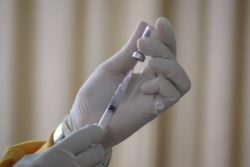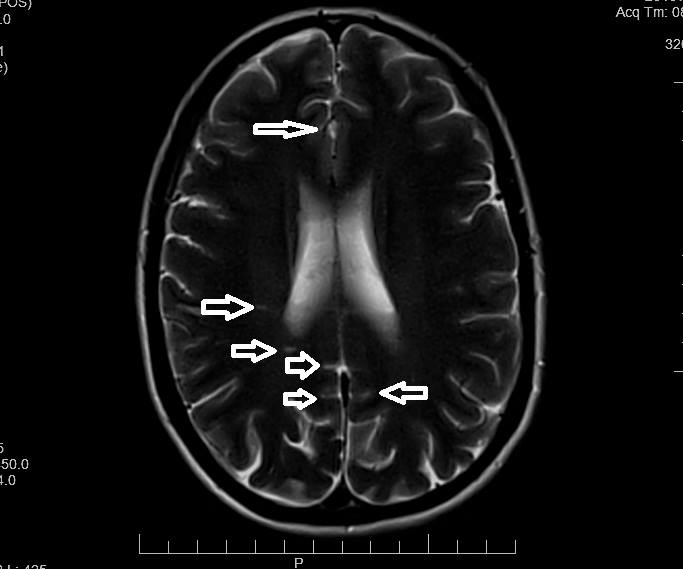I am now 30 year old mother of three very beautiful children. I had suffered for years with irregular menstrual bleeding, horrible lower pelvic pain, cysts, polyps, and HEAVY bleeding. (You’ve heard of Niagara Falls, right?) And so, I spent a lot of time in and out of doctors offices, and the emergency room. All for nothing. The doctors would look at me like I was crazy. I know that their assumption was probably something along the lines of, “She’s just coming in here for pain medication!” When in fact: I never took pain medication. It makes me ill. Finally, I came to live in a small town where the number of doctors were limited. The doctors here think they’re God’s gift to earth. They aren’t!
From the Pill to Lupron: Is This the Best We Can Do?
Step1: I meet this sweet doctor, she does her exam, she recommends a low hormone birth control pill to help get my cycles back on track (Standard procedure) I can accept that! After weeks of trying, my bleeding was not improving and neither was my pain.
Step 2: Go back to the sweet doctor to look at other options, get offered the IUD and decline. Get offered another form of birth control. Decline. End up with another birth control pill.
Step 3: Call the doctor’s office freaking out because I have just passed, what I thought to be miscarriage. And “how can this be possible, my tubes are tied”, per the docs request I took the “thing” to the laboratory for pathology.
Step 4: Doctor calls the next day “It’s not a baby, it is endometrial tissue. Come in to talk about options.” and so, we talk and she decides that our next option is to go into surgery. She wants to go in through my vagina, remove polyps, tissue, whatever nasty things are up there. And then, she wants to do a D&C to really make sure it is all good and clean. So, we do!
Step 5: Nothing has really changed after that surgery. I go back to the ER in excruciating pain. They run a few tests, then call my OBGYN, the doctor comes back into the room and says. “I talked to your doctor and she says that there is no reason you should still be having pain down there. And that you need to go see the general surgeon.” meanwhile, I am crying hysterically! “Are they right? Is this all in my head? Am I crazy?”
Step 6: I go to see the General Surgeon. This doctor sends me to have some liver, kidney, gallbladder test. Clear. He schedules me for a Colonoscopy. Clear. He says he can’t help me.
Step 7: I go back to my OBGYN. Tell her I am still in a lot of pain, I have not stopped bleeding for over a month, and I need something else. I have already had my children, my tubes were tied, I just wanted the pain to go away and so I asked my doctor for a hysterectomy. She said she wasn’t ready to go that far yet and that she had another option… And enters Lupron!!!
Lupron, Lupron, Lupron! Oh, How I Loathe Thee!
Here I am this 29 year old woman, with three kids, an inability to be their mother because I’m always in pain. I’m tired and feel awful from constantly bleeding. Then someone you trust offers you this sort of “quick fix” to all of your woes. HELL YEAH! Two shots in 6 months and my life is going to be so much better. Boy oh Boy was I wrong. I get my first dose of the “golden nectar” and I am ecstatic! That is, until the symptoms started to kick in.
My mood changed drastically. I suddenly couldn’t control my emotions. I couldn’t control my temper, I couldn’t control ANYTHING! I was living at my mother-in-law’s house with my husband and kids. Tensions were high. Spaces were tight. And God love her, her and I could have killed each other I think! (No worries, we get along great now.) And then came the depression. I have battled it my entire life, but this was different. This was a whole new level of low. My husband and I were fighting constantly and, rightfully so, I was not an easy person to get along with. We weren’t speaking and barely existing at this point.
Suicide Attempt
July 4th 2016, I came home with my children and put them all to bed. I stood in my kitchen thinking about my life. I started to cry harder than I ever had before. And I lost it. I lost my mind. I opened my medicine cabinet and I swallowed a bottle of pills. I sat on my floor and sobbed for what was only a few minutes but seemed like an eternity. I thought of my children coming out of their rooms and finding their mother dead on the floor. I ran to the kitchen sink, stuck my fingers down my throat and threw them all up. I asked myself “what the hell is wrong with you!?” and then I realized that this depression and the suicide attempt were possible side effects of this drug. Other women who have taken this drug have experienced the same thing.
I see my doctor again to get my second dose and don’t mention that I tried to harm myself, only that I have thoughts of harming myself and that I am very depressed.
I am now having hot flashes (or the gate of hell flashes), night sweats, fatigue, headaches.
“Those are just side effects, they will go away in the end” she says.
I got a medicine to give my body a bit of hormones and try to help balance me out. Meanwhile, I am still bleeding fairly heavily and in some pain.
When Lupron was “Over”
Isn’t that hilarious! “When Lupron was over! It will NEVER be over!
It has been 7-8 months since my last shot. I still suffer with short term memory loss. I have the hardest time remembering the smallest things. Conversations, what I’m getting at the grocery store, who I’ve told what. It’s awful. My bones hurt so badly. I have a hard time running after my children because of this awful pain in my legs. My hands throb, my shoulders ache, and even my toes hurt. I can’t control my pee anymore. I actually peed myself at work. I know, embarrassing right? I have a migraine every other day and I have gained a ton of weight. I’m always thirsty, I can never get enough water. And my vision is getting worse. I hope and pray that all of this is temporary and that one day soon I will get my sense of normalcy back. But, the truth is, every other woman that I’ve talked with about Lupron and the side effects that they have has experienced the same thing. I will deal with this for the rest of my life. It sucks! I am trying to stay positive. My husband and I, we’re doing great. My kids are healthy and happy. And I will not let this beat me.
God Bless and I hope this helps someone.
We Need Your Help
Hormones Matter needs funding now. Our research funding was cut recently and because of our commitment to independent health research and journalism unbiased by commercial interests we allow minimal advertising on the site. That means all funding must come from you, our readers. Don’t let Hormones Matter die.




















